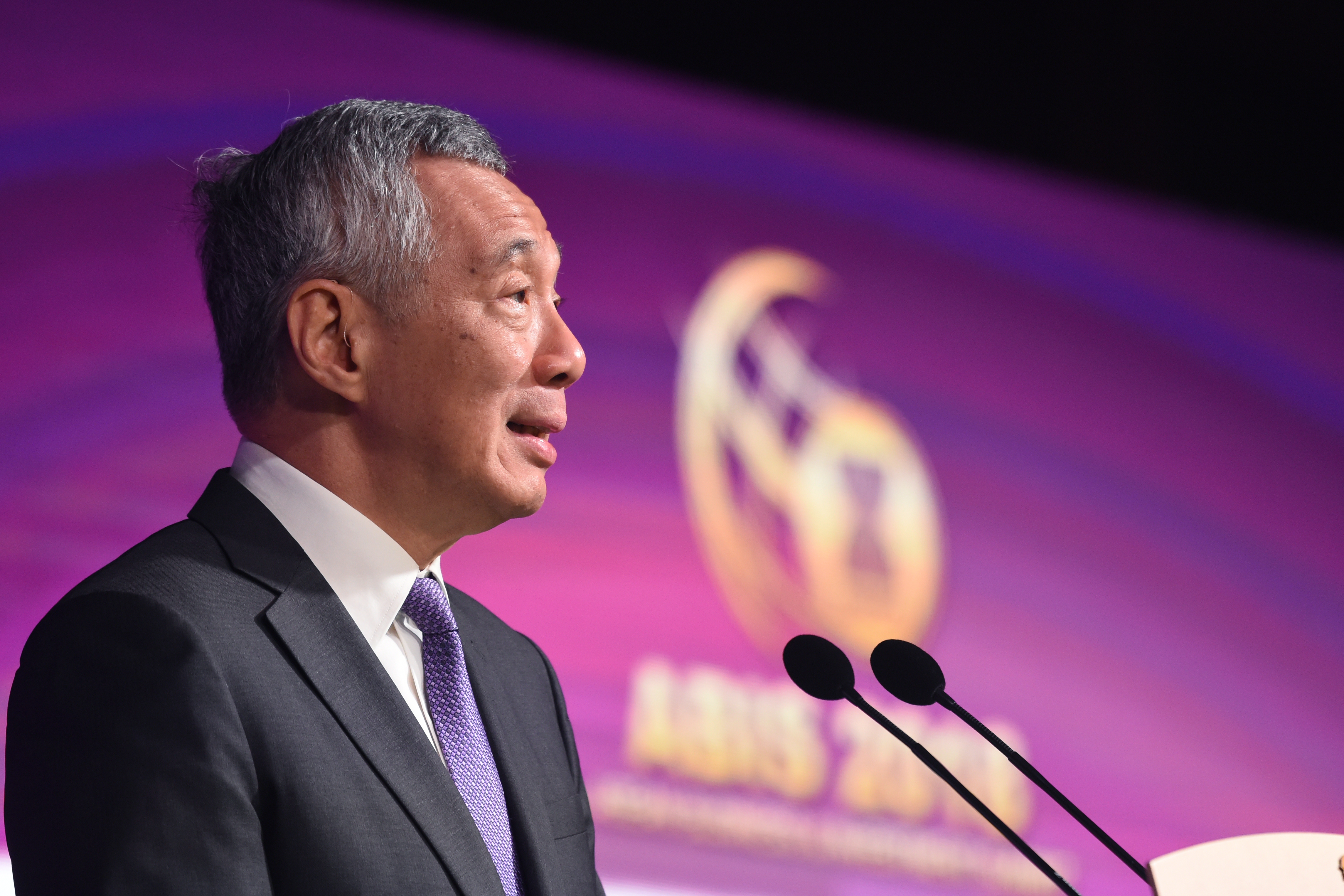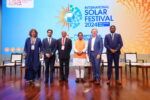Call for open markets as world leaders gather in Singapore
Singapore’s Prime Minister Lee Hsien Loong has called for markets across Southeast Asia to be more open (Roslan RAHMAN)
Singapore (AFP) – Singapore’s prime minister made an impassioned plea Monday for open markets and warned “political pressures” were driving countries apart, in a swipe at rising protectionism at the start of a gathering of world leaders.
Dignitaries including Chinese Premier Li Keqiang and US Vice President Mike Pence are attending this week’s summit in the city-state against the backdrop of a months-long trade dispute between Beijing and Washington.
Some of the leaders are expected to announce major progress on a massive China-backed trade deal that excludes the US, in a rebuke to President Donald Trump’s increasingly unilateralist approach to international commerce.
Trump is skipping the annual summit — which was regularly attended by his predecessor Barack Obama — in a sign of how far he has withdrawn from attempts to shape the global rules of trade and raising new questions about Washington’s commitment to Asia.
Addressing a business forum ahead of this week’s main meetings, Singapore Prime Minister Lee Hsien Loong called for Southeast Asian companies to invest more in each others’ markets and be more open to foreign competition.
“The more integrated and open our markets are, and the more conducive our rules and business environments to foreign investment, the larger the pie will grow, and the more we will all benefit,” he said.
The 10-member Association of Southeast Asian Nations (ASEAN) “has great potential, but fully realising it depends on whether we choose to become more integrated, and work resolutely towards this goal in a world where multilateralism is fraying under political pressures”.
– Economic standoff –
The US-China trade dispute has seen Trump slap higher tariffs on roughly half of Chinese imports, and Beijing retaliate with its own levies.
The standoff is having an impact far beyond the world’s top two economies, and leaders at the four days of meetings will be keen to voice their grievances to Pence, who is participating in Trump’s place, and China’s Li.
Some export-reliant Asian economies have already seen manufacturing activity weaken, while Singapore’s prime minister warned earlier this year that a trade war would have a “big, negative impact” on the financial hub, which relies heavily on international commerce.
While Trump has railed at trade deals and pushed his isolationist “America First” agenda, Beijing has increasingly talked up the benefits of open markets.
In an editorial in Singapore’s pro-government Straits Times newspaper Monday, China’s Li said the world was facing “challenges of rising protectionism and unilateralism”.
“We should work for an open world economy by advocating, practising and upholding openness,” he wrote.
Many of those attending the Singapore summit are expected to send a message in support of free trade by announcing major progress on a China-backed deal, the 16-member Regional Comprehensive Economic Partnership (RCEP).
With Trump having pulled the US out of rival pact the Trans-Pacific Partnership (TPP), the RCEP is now the world’s biggest trade deal, covering half the world’s population.
The pact — which is less ambitious than the TPP in areas such as employment and environmental protection — groups the 10 ASEAN members plus China, India, Japan, South Korea, Australia and New Zealand.
The TPP, which was championed by Obama as the economic plank of his “pivot to Asia”, has been kept alive without the US and will go into force this year.
Disclaimer: This story has not been edited by Siliconeer and is published from a syndicated feed. Siliconeer does not assume any liability for the above story. Validity of the above story is for 7 Days from original date of publishing. Content copyright AFP.


